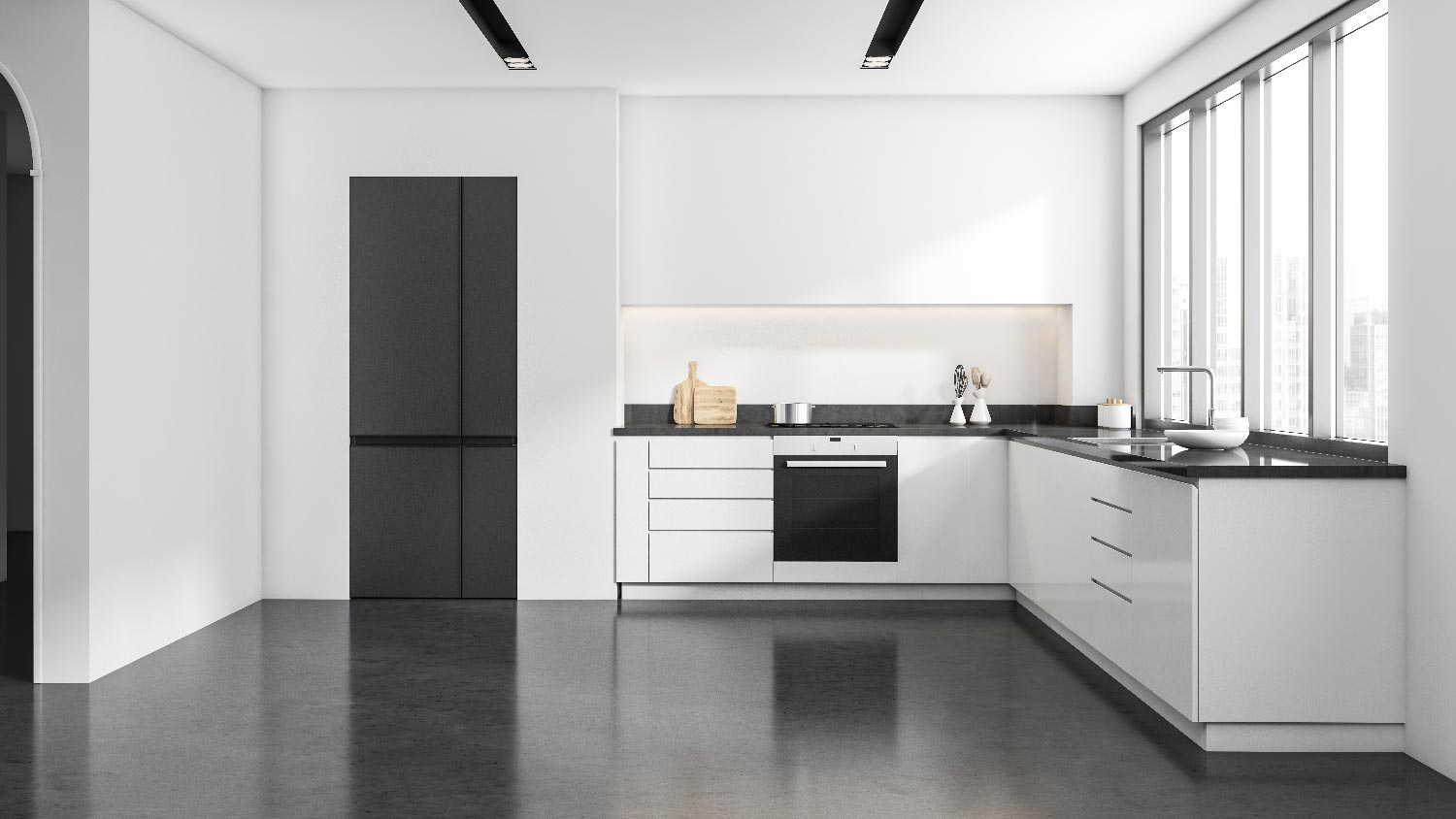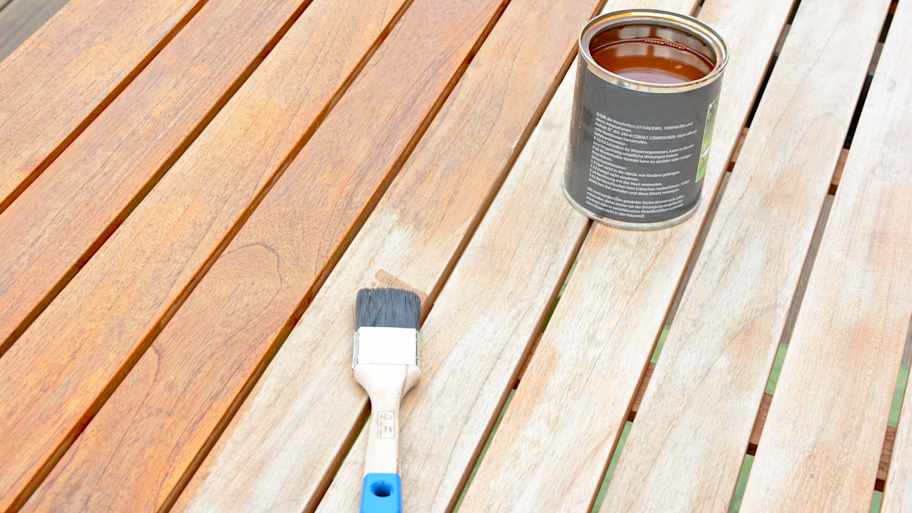
Looking for a more eco-friendly flooring option? Learn how much Marmoleum® flooring costs and what factors can affect the price of installation.
Installing a new floor in Minneapolis, MN costs $2,566 on average, but can range between $1,264 and $3,986, depending on the room size and type of flooring.


Average labor costs for standard flooring installations in Minneapolis range between $2 and $8 per square foot, not including materials and other expenses.
Removing existing carpet costs $1 to $1.50 per square foot before new flooring can be installed to replace it.
Older homes may need subfloor repairs or replacement, costing $3 to $10 per square foot.
Minneapolis homeowners recoup an average of 55% to 70% of flooring installation costs at the time of resale.
With harsh winters and dramatic seasonal temperature swings, Minneapolis, Minnesota, presents unique demands for local homeowners. New flooring installation in Minneapolis costs $2,566 on average, ranging from $1,264 to $3,986 for typical midrange renovation projects.
Winter presents particular challenges as snow, ice, salt, and de-icing chemicals get tracked indoors, requiring flooring that can withstand moisture and chemical exposure without warping or staining.
The main factors influencing the cost of flooring installation projects in Minneapolis, Minnesota, are material selection, room size, and the complexity of the installation. Additional expenses include moving old furniture, removing old flooring, and repairing or replacing existing subfloors.
When ordering flooring materials, first measure the square footage of the floor space. You may need to add an extra 10% for wastage during the installation process. A flooring pro can provide guidance for more challenging layouts or stairs.
New flooring in Minneapolis costs an average of $10 to $13 per square foot for midrange projects, so the larger the project, the higher the installation cost will be.
You may receive a discount on the rate per square foot for larger projects, while some companies may charge a higher flooring cost per square foot for small jobs to meet their minimum project cost requirements.
| Room Size in Feet | Square Footage | Average Cost |
|---|---|---|
| 10x10 | 100 | $1,150 |
| 10x12 | 120 | $1,380 |
| 12x12 | 144 | $1,660 |
| 12x14 | 168 | $1,930 |
| 14x16 | 224 | $2,580 |
| 16x16 | 256 | $2,950 |
| 18x18 | 324 | $3,730 |
| 18x20 | 360 | $4,140 |
| 20x20 | 400 | $4,600 |

The price of your new flooring depends heavily on the type of material you choose. Generally speaking, natural materials are pricier, while synthetic materials are more affordable. For instance, hardwood flooring costs between $10 and $18 per square foot, while linoleum flooring costs $3 to $12 per square foot.
Of course, the type of flooring material that’s best for your home depends on the area you’re putting it in, the amount of traffic it gets, whether you have kids or pets running around, your local weather and climate, and your aesthetic.
| Type of Flooring | Average Cost per Square Foot | Lifespan (Years) | Pros | Cons |
|---|---|---|---|---|
| Tile | $15–$22 | 75–100 | Highly durable and waterproof. Easy to clean. | Can chip and crack. Can be difficult to install. |
| Hardwood | $10–$18 | 30–100 | Can be resurfaced and refinished. Lots of variations to choose from. | Susceptible to damage from water and moisture. Requires some maintenance. |
| Engineered wood | $4.50–$16 | 20–30 | Looks like hardwood and is more resistant to moisture. Can be refinished. | Not entirely moisture resistant. Can only be refinished once or twice. |
| Stone | $8–$20 | 50–100 | Very durable and low maintenance. Sustainable. | May require structural reinforcement due to weight. Difficult installation. |
| Carpeting | $3–$8 | 5–15 | Comfortable to walk on. Affordable and easy to install. | Difficult to clean. Stains easily and absorbs odor. |
| Laminate | $4–$9 | 10–30 | Affordable alternative to hardwood. Easy to install. | Not moisture resistant. Difficult to repair, and can’t be refinished. |
| Vinyl | $5–$12 | 10–25 | Affordable and durable. Can mimic other materials like hardwood and stone. | Can become discolored and wear over time. |
| Linoleum | $3–$12 | 20–40 | Recyclable and made from natural materials. Affordable and long-lasting. | Needs to be sealed. Not as durable as other materials. |
| Polished concrete | $2–$16 | 50–75 | Very durable with a long lifespan. Low maintenance and affordable. | May need structural reinforcement due to its weight. Must be properly sealed. |
| Bamboo | $2–$20 | 10–30 | Sustainable and highly durable. | Susceptible to moisture damage. Shorter lifespan than other materials. |
| Cork | $5–$19 | 20–40 | Low maintenance and allergy-friendly. | Not as durable as other flooring. Susceptible to moisture related expansion and contraction. |
Your flooring installation company may charge an additional rate, averaging $60 to $120 per hour, to remove furniture from the room or home before installing the floors. Save money on your flooring installation costs by moving furniture and other objects prior to the project’s start date.
Removing old flooring costs $1.50 to $3.50 per square foot, depending on the type of floor and how it was installed. For example, tile removal costs can range from $2 to $7 per square foot, while removing carpet that is nailed or stapled to the floor costs $1 to $1.50 per square foot.
Subflooring replacement costs $3 to $10 per square foot. Subfloors help support your flooring, whether you choose carpet, tile, or hardwood. You need this base layer to be in good condition, so if your subfloors are too weak or have water damage, you’ll need to repair or replace them before installing new flooring.
If your floor type needs underlayment, it will add $0.50 to $5 per square foot to the flooring installation cost. Not all floors need underlayment, but you likely need it if you install carpet or laminate flooring.
Installing flooring on stairs costs $11 to $160 per step, depending on the type of flooring you choose. The cost of adding carpet to stairs falls on the lower end of the scale because it’s easier to install over the curves and ridges of steps than a rigid material like hardwood, which may cost up to $160 per step due to the complexity of installation and the higher cost of the material.
If your flooring pro detects mold, removal is crucial before laying down new flooring. Mold remediation costs $10 to $25 per square foot. If a flood or leaky plumbing left mold or water damage under the flooring, you’ll need to factor in the additional costs for a local mold removal service to keep your family safe.
Finishes, like polyurethane, urethane, or wax, cost $0.85 to $7 per square foot. Consider adding a finish to hardwood, natural stone, or concrete flooring to help the material last longer. Finishes are also a good idea for entryways, living rooms, or other high-traffic spaces in your home.
When you’re putting down new floors, you might look around the room and decide to add some other projects at the same time. Here are the average costs for common floor installation add-ons:
Baseboards: $700–$2,500
Floor paint: $1,000–$2,000
Radiant floor heating: $1,500–$6,000
Floor joist replacements: $4,000–$15,000
Professional floor cleaning: $200–$300
Hardwood floor refinishing: $1,100–$2,600
Hardwood floor repairs: $480–$1,710
Hiring experienced flooring installers in Minneapolis is crucial, as poorly installed flooring can suffer from expansion and contraction when temperatures drop below freezing. Skilled labor is especially important when addressing subfloor issues or other pre-installation repairs.
Depending on who installs hardwood floors in your home, you can expect to pay anywhere from $2 to $8 per square foot in labor for standard installation in Minneapolis. This includes more straightforward installations of laminate, carpet, or click-lock vinyl plank. Expect to pay a premium for complex work involving intricate patterns.
Experienced installers who understand Minnesota's climate demands, like implementing proper expansion gap sizing for extreme temperature swings, can help prevent expensive callbacks.
Replacing existing flooring with similar materials in residential properties usually does not require a separate building permit in Minneapolis, regardless of the square footage.
If your flooring upgrade involves structural work, like removing load-bearing walls or replacing floor joists, a permit is likely required. Similarly, you will likely need a permit for any electrical, plumbing, or mechanical work, like installing radiant in-floor heating. Confirm with the local building department in Minneapolis or ask your contractor for guidance.
Minneapolis's distinct seasons create predictable fluctuations in flooring contractor availability and pricing. Summer months see particularly high demand as families complete projects before school starts, sometimes resulting in up to four-week wait times for popular contractors.
Contractor availability improves dramatically in the winter, and some pros may offer discounted rates to fill schedules during slower periods. Indoor projects, like flooring replacements, can usually proceed without weather delays. Just be mindful that materials arriving from outdoor delivery trucks or unheated warehouses need extended acclimation periods before installation can begin.
Comprehensive flooring renovations in Minneapolis homes sometimes require specialists beyond your primary installer, particularly in older properties or homes with basement moisture issues.
Asbestos testing for $200 to $500 may be needed if you're removing existing flooring in Minneapolis homes built before 1980.
Basement waterproofing specialists may be consulted at $110 to $145 per hour for below-grade flooring installations.
Licensed electricians and HVAC professionals can install radiant in-floor heating systems for $70 to $150 per hour, plus materials.
The average return on investment (ROI) ranges from 55% to 70% for midrange flooring installations in the Minneapolis-St. Paul real estate market. Flooring is a visible, impactful upgrade, so paying to repair or replace hardwood flooring is a worthwhile investment to improve buyer appeal. The city's historic homes feature original oak and maple flooring that buyers value highly, and professionally refinished floors can justify premium pricing.
High-quality materials, consistent flooring throughout the main living areas, and installation that meets neighborhood expectations can all boost ROI. Factors that can reduce ROI include poor workmanship, limited area upgrades, and overspending on materials far above neighborhood norms.
Home is the most important place on earth, which is why Angi has helped more than 150 million homeowners transform their houses into homes they adore. To help homeowners with their next project, Angi provides readers with the most accurate cost data and upholds strict editorial standards. We survey real Angi customers about their project costs to develop the pricing data you see, so you can make the best decisions for you and your home. We pair this data with research from reputable sources, including the U.S. Bureau of Labor Statistics, academic journals, market studies, and interviews with industry experts—all to ensure our prices reflect real-world projects.
Want to help us improve our cost data? Send us a recent project quote to [email protected]. Quotes and personal information will not be shared publicly.
From average costs to expert advice, get all the answers you need to get your job done.

Looking for a more eco-friendly flooring option? Learn how much Marmoleum® flooring costs and what factors can affect the price of installation.

OSB is a common material used for subflooring, wall sheathing, and roofing. Here’s a breakdown of how much OSB panels will cost for your project based on type and size.

Staining concrete floors can add a little something to a drab slab. Learn more about how much stained concrete floors cost and what factors impact it.

Tung vs. linseed oil are products that have a lot of similarities. However, you can use them more effectively when you understand their subtle differences.

If you’re dealing with warped or creaky floors, it could be a subfloor issue. This guide will show you how to replace a subfloor totally DIY.

Learning how to install transition strips in doorways makes the transition between rooms smoother and protects the edges of the flooring.